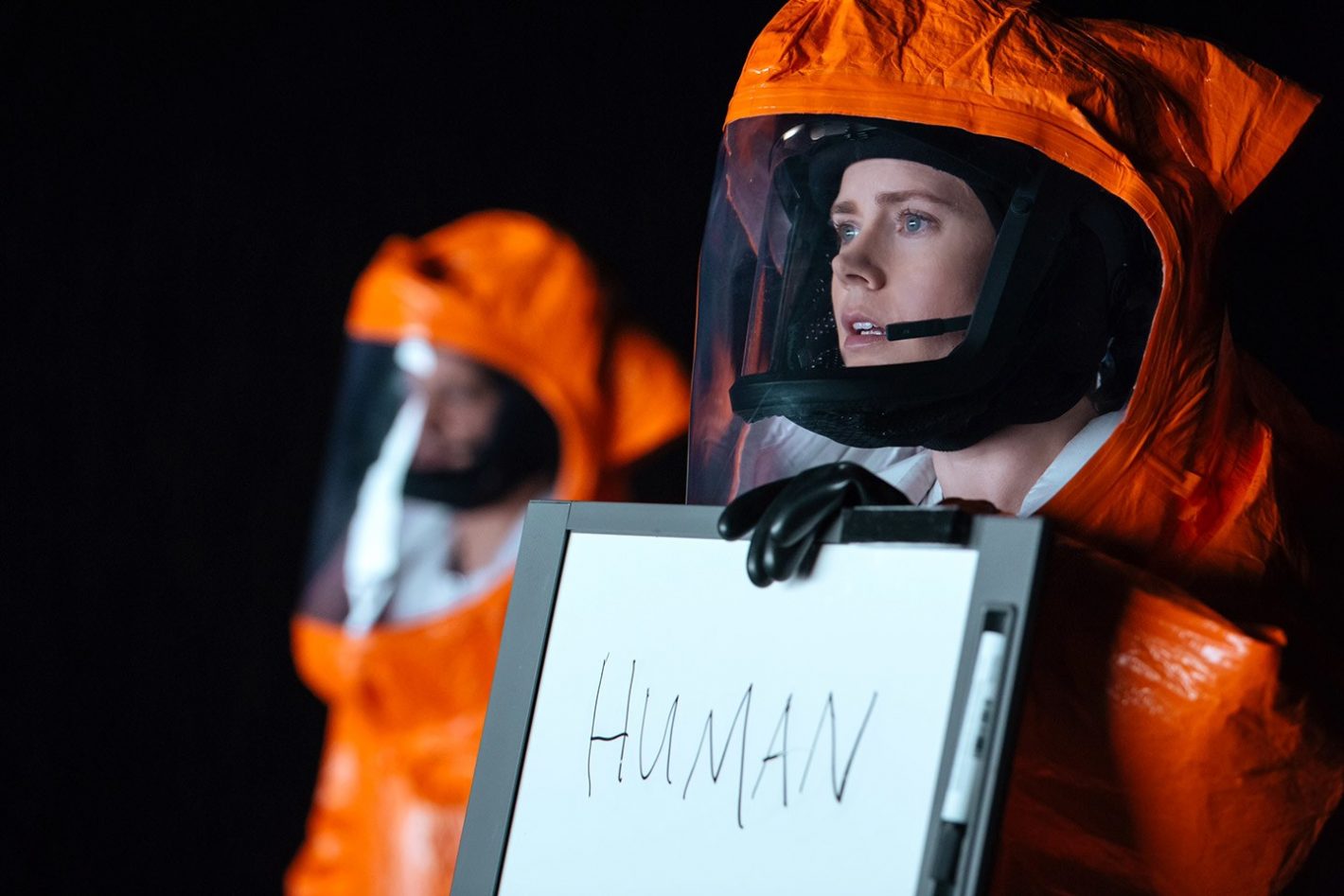
Don’t hate me for this, but I think the 21st century hasn’t really done sci-fi very well. It’s disappointing (though I guess Hollywood has been making up for it with a fine selection of contained horror films). We’ve had our fair share of hokey premises, paper-thin plot lines and murky logic-spirals (I’m looking at you, Inception), but there’s hope: Arrival, the remarkable new film by Denis Villeneuve is a breath of fresh alien air.
Director Villeneuve and screenwriter Eric Heisserer’s adaptation of Ted Chiang’s short story picks up where films like 2001: A Space Odyssey and Contact left off—films conceived to honor the artistry of storytelling and the beauty of imagination instead of lining some Hollywood executive’s pockets with Maserati money.
Like Villeneuve’s other recent successes, Prisoners (2013) and Sicario (2015), Arrival orients itself around an ethical dilemma: What happens when humans, fractured by fear and self-interest, are forced to communicate with “others?”
Amy Adams plays Dr. Louise Banks, a world-class linguist who, after aliens arrive in 12 mysterious spacecraft scattered across the globe, is commandeered by the U.S. Army to reach out to the unusual creatures inside. Adams, haunted by visions of her beloved daughter’s sickness and eventual death, is broken but determined.

The spacecraft, we’re told, opens up once every 18 hours, and with a team including easygoing physicist Ian Donelly (played by Jeremy Renner) and overbearing Army colonel (Forest Whitaker), Dr. Banks enters the ship with the intent to make contact. It’s here that Villeneuve’s filmmaking maturity shines. Instead of a sophomoric sequence depicting the magnificence of the ship’s inner alien workings, he sits back and lets the audience experience the boarding of the vessel through the perspective of the nervous Dr. Banks. With her labored breathing in our ear, we’re hoisted up into the strange cavern and it’s through her eyes that we see the curious beings for the first time.
As the visions of her daughter’s death intensify, the visitors seem to gravitate toward Dr. Banks’ emotions, which are raw with grief, and it is with her that they achieve a rudimentary form of understanding resulting in a basic understanding between the researchers and the aliens.
Ironically, as inter-species understanding blossoms, international communication breaks down. Russia, host to two of the 12 ships, executes one of their own in order to prevent information from being shared. China belligerently threatens military action against their craft. Pakistan and Sierra Leone follow suit, cutting off ties and threatening aggression.

Under renewed duress, Dr. Banks climbs back into the ship and uses their basic means of communication to ask their intentions. The response is ambiguous—is it a gift or a threat? As other nations learn of the possible threat, more of them prepare for war.
With the second act in full swing, the film benefits from Villeneuve’s masterful pacing and impeccable visual composition as well as Heisserer’s terse narrative, which relies heavily on Benjamin Lee Whorf’s theory that the structure of a language affects the speaker’s cognition.
A friend described Arrival as a “thinking person’s science fiction film,” which wouldn’t be entirely inaccurate due to the science and philosophy that imbues the film, but more than anything it’s the feeling person’s science fiction film. In an era marked by fear (on both sides) of partisan politics, Arrival uncovers the perils of aggression and the risk of treating an unknown other like an enemy.
It would really be a disservice to delve much more into the plot and the ensuing twist—a twist, by the way that really works because while it seemingly comes from nowhere, clues can be found peppered throughout the film. This is the kind of philosophical film with a twist that is as important to the ethos of the film as it is to the structure.
Arrival doesn’t beat you over the head with details. It doesn’t rely on special effects or large action sequences, and the film’s big reveal feels more like a hearty payoff than a cheap end cap. This is an elegant story about a mother who is navigating the trauma of losing her daughter while trying to unravel the mysteries of the universe. The film asks the big questions in a riveting way. See it.



Comments